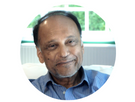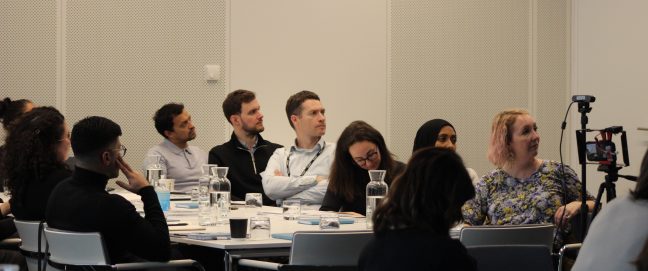Banks and wealth managers are ideally placed to help their customers use their wealth for good. So why are relatively few talking to their customers about philanthropy and impact investing? And when they do talk about it, are they providing the best quality advice? Recent research suggests it’s time to rewire the system of financial advice to create a true impact marketplace where banks compete to help their customers do good for society. What are the barriers to making this happen?
 Alliance hosted a global conversation on this topic in partnership with UBS Optimus Foundation to examine these issues.
Alliance hosted a global conversation on this topic in partnership with UBS Optimus Foundation to examine these issues.
Moderated by Maya Ziswiler, CEO at UBS Optimus Foundation, the speakers were:
- Sir Partha Sarathi Dasgupta, Indian-British economist and Frank Ramsey Emeritus Professor of Economics at the University of Cambridge
- Alejandro Litovsky, Founder & CEO, Earth Security
- Nicole Sykes, Director of Policy and Communications, Pro Bono Economics
A few highlights from the event:
 Sir Partha said: The G7 countries – the rich countries – have essentially outsourced their demand for primary goods. It’s not an accident that the greatest biodiversity happens to be in the tropics, and the world’s poorest happen to be in the tropics. That’s not a coincidence… Primary goods are at the top end of the supply chain of the company, and the products are in [our] supermarkets.
Sir Partha said: The G7 countries – the rich countries – have essentially outsourced their demand for primary goods. It’s not an accident that the greatest biodiversity happens to be in the tropics, and the world’s poorest happen to be in the tropics. That’s not a coincidence… Primary goods are at the top end of the supply chain of the company, and the products are in [our] supermarkets.
That creates problems; a feature of ecosystems is that they are hugely correlated with one another. What happens to one – such as a wetland – affects the farms nearby. What happens to the farms nearby affects the wetland’s productivity. Now this correlation means that the decay of ecosystem through overuse… causes fluctuations. How do you reduce that risk? It’s correlated with ecological risk. You can’t insure that risk away, because of the positive correlation.
 Alejandro: I recently saw a cartoon of an investment boardroom, where they were projecting a slide on forests, which read: If all the trees in the world were able to emit a Wi-Fi signal, we would be able to unlock finance for reforestation on a global scale. Too bad they only produce the oxygen we breathe. This illustrates the paradox we’re in at the moment, this difficult junction where we know the value that the planet’s ecosystems provide us as a species, we know that without them we cannot survive, but we don’t yet have those off-the-shelf, scalable investment products that can have a positive impact… Despite all the social finance innovation, we’re still accelerating towards overshoot.
Alejandro: I recently saw a cartoon of an investment boardroom, where they were projecting a slide on forests, which read: If all the trees in the world were able to emit a Wi-Fi signal, we would be able to unlock finance for reforestation on a global scale. Too bad they only produce the oxygen we breathe. This illustrates the paradox we’re in at the moment, this difficult junction where we know the value that the planet’s ecosystems provide us as a species, we know that without them we cannot survive, but we don’t yet have those off-the-shelf, scalable investment products that can have a positive impact… Despite all the social finance innovation, we’re still accelerating towards overshoot.
 Nicole: Banks and wealth managers can offer great, high quality and advice on philanthropy to their clients. It’s not as simple as it sounds – there are 23 different services which philanthropists could require on their giving journey… but the sector offering greater volume, and greater quality of advice could be significantly advantageous.
Nicole: Banks and wealth managers can offer great, high quality and advice on philanthropy to their clients. It’s not as simple as it sounds – there are 23 different services which philanthropists could require on their giving journey… but the sector offering greater volume, and greater quality of advice could be significantly advantageous.
…[There is] a huge and growing demand for money to do more good. …Millennials are more likely than any other age group to believe that returns have to be sacrificed to generate social group, yet they are the most interested in sustainable investing. Young HNWIs under 34 are about 50% more likely than over 55s to say that they have a responsibility to share their wealth in a productive way.
You can watch the full recording of the event here:
Our next Alliance event takes place in March in partnership with Asia Philanthropy Circle. Make sure you are on our mailing list to receive an invite!
Amy McGoldrick is the Head of Marketing, Advertising & Events





Comments (2)
Banks and wealth managers can offer great, high quality and advice on philanthropy to their clients. It’s not as simple as it sounds – there are 23 different services which philanthropists could require on their giving journey… but the sector offering greater volume, and greater quality of advice could be significantly advantageous. …[There is] a huge and growing demand for money to do more good. …Millennials are more likely than any other age group to believe that returns have to be sacrificed to generate social group, yet they are the most interested in sustainable investing. Young HNWIs under 34 are about 50% more likely than over 55s to say that they have a responsibility to share their wealth in a productive way. You can watch the full recording of the event here:
Aha There is] a huge and growing demand for money to do more good. …Millennials are more likely than any other age group to believe that returns have to be sacrificed to generate social group, yet they are the most interested in sustainable investing. Young HNWIs under 34 are about 50% more likely than over 55s to say that they have a responsibility to share their wealth in a productive way. You can watch the full recording of the event here: